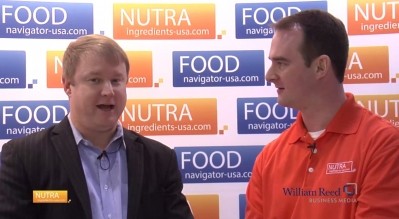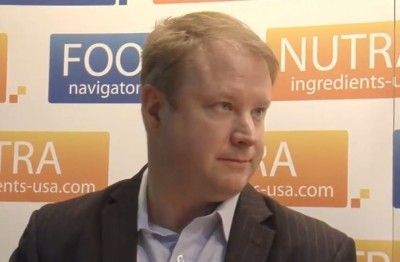Could ‘controversial’ pharma court ruling provide ‘wiggle room’ for off-label dietary supplement marketing?

A perspective published recently in the New England Journal of Medicine examined the “controversial leap” by a three-judge panel of a U.S. appeals court “toward what some fear will be license by the courts to invalidate a host of state and federal regulations, including some applicable to health care”.
The December 3, 2012 ruling noted that a pharmaceutical sales representative can promote a drug for off-label use and that this is protected speech.
According to the NEJM article by Marcia M. Boumil from Tufts University School of Medicine, Boston: “Overturning the conviction of a sales representative who was found to have engaged in off-label promotion of a prescription drug, a three-judge panel of the U.S. Court of Appeals for the Second Circuit (New York) held in United States v. Caronia that ‘the government cannot prosecute pharmaceutical manufacturers and their representatives under the [Food, Drug, and Cosmetic Act] for speech promoting the lawful, off-label use of an FDA-approved drug’.”
Implications for dietary supplements?
Despite referring to FDA-approved drugs, the ruling may have some “far reaching effects” for the nutritional supplement business as well, said Frank Jaksch, Founder and CEO of Chromadex.
Jaksch told NutraIngredients-USA that an interesting quote from the court decision is: ‘If pharmaceutical marketing affects treatment decisions, it does so because doctors find it persuasive’, and ‘the fear that speech might persuade provides no lawful basis for quieting it’.
“So if you substitute nutritional supplement marketing for pharmaceutical marketing in that quote, then the decision of a doc to recommend a supplement is of course protected and apparently the right of a sales person to present evidence of efficacy and infer or even state claims, should be protected, provided it is backed up by the scientific facts,” said Jaksch.
“That should give nutritional supplements more than a little wiggle room on inferring or even stating the therapeutic benefits of their products,” he added.
Undermining the FDCA
Offering a word of caution, Marc Ullman from New York firm, Ullman, Shapiro & Ullman LLP, told us that the Second Circuit Court decision in the off-label use case is very interesting – “though I think more for what it says about the trend in favor of speech in First Amendment cases than anything specific”.
“If the case is read as allowing all off-label marketing on the principle that you cannot limit speech to doctors, then you undermine the entire regulatory scheme created by the FDCA.
“For example, there would be nothing to stop the marketer of the botanic drug Fulyzaq (derived from the red sap of the Croton lechleri plant) from marketing its product off-label as a cancer treatment when its approval is for treatment of diarrhea in HIV/AIDS patients.
“Similarly, there would be nothing to stop a company from gaining approval of their product as an orphan drug (fast track and much less expensive process) for treatment of an obscure disease with few patients and then turning around and marketing off-label for treatment of a condition with a much broader market where ‘orphan’ status would have been unavailable.
“Part of the problem with the government’s case may be in the pleadings,” added Ullman. “I looked at the criminal complaint and it did not look like the government plead that the off-label marketing program was evidence of ‘intended use’ of the product as an unapproved drug.
“If this had been plead clearly and the Second Circuit had still reached the same conclusion, we might well be looking at a sea change. As stands now, I don’t think we are.”
Source: New England Journal of Medicine
December 12, 2012 DOI: 10.1056/NEJMp1214926
“Perspective: Off-Label Marketing and the First Amendment”
Author: M.M. Boumil








